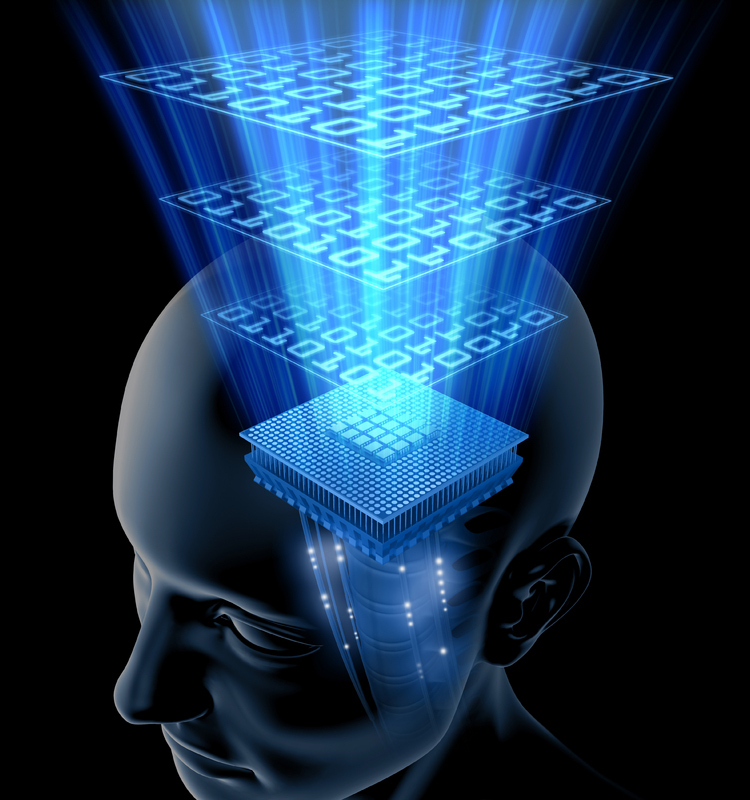Fresh on the heels of India’s massive databasing program that is set to encompass all 1.2 billion members of its population, recent announcements by IBM should be drawing the attention of some 300 million Americans.
IBM’s
“IBM 5 in 5” predictions reveal part of a goal that has been discussed for some time, yet too often continues to be dismissed as mere conspiracy theory. This goal is for biometric data such as fingerprints, iris scans, and voice recognition to not only become commonplace amongst the general public, but soon to replace all other forms of identification.
Even more startling, the next level of technology is set for release which will link the human brain directly to the digital world, enabling the user to control their reality purely by thought.
IBM has also announced that it is developing technology that can harness the power of human movement for the purpose of providing “renewable energy.”
The IBM 5 in 5 is a series of five predictions for the next five years which “is based on market and societal trends as well as emerging technologies from IBM’s research labs around the world that can make these transformations possible.”
Directly related to the massive biometric database being created in India, the IBM technology can (and most likely will) be used to create a database of user biometrics that includes the very same type of information currently being collected on the other side of the world — facial photographs, fingerprints, and iris scans – here in the United States and elsewhere in the Western world. The IBM system, however, comes with the notable addition of voice files.
In regards to the predicted biometric identification technology, IBM states:
You will no longer need to create, track or remember multiple passwords for various log-ins. Imagine you will be able to walk up to an ATM machine to securely withdraw money by simply speaking your name or looking into a tiny sensor that can recognize the unique patterns in the retina of your eye. Or by doing the same, you can check your account balance on your mobile phone or tablet.
Each person has a unique biological identity and behind all that is data. Biometric data – facial definitions, retinal scans and voice files – will be composited through software to build your DNA unique online password.
Referred to as multi-factor biometrics, smarter systems will be able to use this information in real-time to make sure whenever someone is attempting to access your information, it matches your unique biometric profile and the attempt is authorized.
All of this is precisely the argument behind the enormous database being implemented in India, as well as behind the technology being introduced to the American public under the guise of convenience and protection against identity theft. Although the systems have yet to take off culturally, there is little doubt that the vast majority of trendy Americans will be content to give up their most private information to either the government or to greedy corporations (which are now essentially one and the same) based solely on the promise of more convenience and the ability to use even less of their brain during the course of the average day.
But, although many simply remain silent at first, due to the fact that they are currently able to go about their day without encountering such invasive technology, the truth is that their ability to continue to gain access to accounts and pay bills with cash, checks, etc. is fading fast. In totalitarian systems such as our own, what begins as a convenience for those who can afford it almost always ends in compulsion and mandates for everyone, even those at the bottom.
At first, the program is introduced as a way to speed up transactions, increase efficiency, and provide convenience. Soon, however, governments and businesses begin to transition out of the older methods of payment and identification and focus more on the new technology. Identification using the traditional methods remain as an option, but become viewed as cumbersome. Eventually, the alternative methods are phased out completely and mandates replace what was once a personal choice.
The IBM statement reads:
IBM scientists are among those researching how to link your brain to your devices, such as a computer or a smartphone. If you just need to think about calling someone, it happens. Or you can control the cursor on a computer screen just by thinking about where you want to move it.
Scientists in the field of bioinformatics have designed headsets with advanced sensors to read electrical brain activity that can recognize facial expressions, excitement and concentration levels, and thoughts of a person without them physically taking any actions.
Yet, although IBM predicts these inventions as advancements in the near future, the fact is that they already exist, even within the mainstream level of science that is permitted to be disclosed for public consumption. For years implants have allowed monkeys to control computer cursors and even robotic arms in laboratory settings.
In a recent experiment, two macaque monkeys were trained to control a virtual arm represented on the computer screen and use the arm to “grasp” virtual objects, even feeling the objects that they grasped.
Such technology has long been promoted by those in the
Singularity movement, a branch of Transhumanism that looks forward to the day when humans actually merge with machines to create a
new and “improved” type of human species.
Lastly, IBM’s predictions about harnessing energy, while possibly a positive development in terms of environmentally friendly energy solutions, are also a bit alarming, especially when taken in context of its other developments. IBM states:
Anything that moves or produces heat has the potential to create energy that can be captured. Walking. Jogging. Bicycling. The heat from your computer. Even the water flowing through your pipes.
Advances in renewable energy technology will allow individuals to collect this kinetic energy, which now goes to waste, and use it to help power our homes, offices and cities.
Interestingly enough, “anything that moves or produces heat” includes human beings. While the technology could be used to harness wasted energy and turn that into a truly sustainable method of energy production that can continue to be improved upon, one must also wonder if human beings will not become the focus of the energy output source.
Is it feasible that a human being’s natural energy might be used to power some type of computer/brain interface device? Or that a human’s natural energy would be harnessed to power other devices outside of the body? Could this energy be harnessed from afar?
IBM is not clear in its press release as to the potential ethical concerns over its “new” technology. However, with a company that has such an
unfortunate history regarding ethical decisions, it might be wise to view its announcement with a large dose of healthy skepticism and reserve.
Although this type of technology, for some, may seem unbelievable, the fact is that it is very real. No longer are computer/brain interfaces something only seen in movies like The Matrix. No longer can the Cashless Society be considered merely the rumination of country preachers and “conspiracy theorists.”
The future is already here. If we are to control our own destiny, it is essential that we recognize the path we are on and whether or not we should proceed more carefully.
Brandon Turbeville is an author out of Mullins, South Carolina. He has a Bachelor’s Degree from Francis Marion University where he earned the Pee Dee Electric Scholar’s Award as an undergraduate. He has had numerous articles published dealing with a wide variety of subjects including health, economics, and civil liberties. He also the author of Codex Alimentarius – The End of Health Freedom, 7 Real Conspiracies and Five Sense Solutions. Brandon Turbeville is available for podcast, radio, and TV interviews. Please contact us at activistpost@gmail.com.
RELATED ACTIVIST POST ARTICLE:
Downloading Humans: The Hive Group Philosophy
var linkwithin_site_id = 557381;
linkwithin_text=’Related Articles:’





Be the first to comment on "Beyond the Cashless Society: IBM’s Vision for the Future"